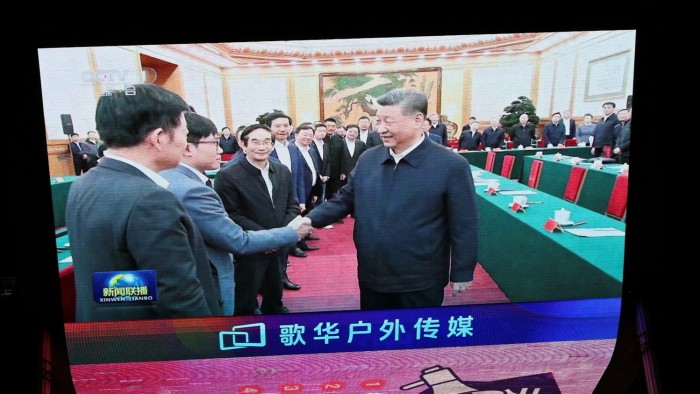Unlock the Editor’s Digest for free
Roula Khalaf, Editor of the FT, selects her favourite stories in this weekly newsletter.
International investors are returning to China’s start-up scene, with small venture capital fundraisings marking the first signs of a thaw for a sector hit by geopolitical tensions and a tech crackdown.
People familiar with the fundraising efforts said several of the country’s top VC funds were close to raising as much as $1.1bn in total dollar-denominated funds this year.
Source Code Capital, an early investor of TikTok owner ByteDance, has raised $150mn, while BA Capital, an investor in Labubu maker Pop Mart, is closing in on a similar-sized fund.
Lightspeed China Partners, which backed ecommerce group PDD Holdings, has pulled in more than $200mn for a yet-to-close fund. Qiming Venture Partners, which has funded a number of China’s most promising biotech start-ups, is making progress on its goal of raising about $600mn.
While the fundraising totals are modest compared with previous years, they signal the tentative return of global capital to Chinese tech after new outbound investment rules from Washington and a deteriorating Chinese economy pushed investors to the sidelines in 2023.
Data from research provider Preqin shows China-focused VCs raised $1.3bn in dollar funding in 2024, down from $30bn raised over 2021 and 2022.
The figure does not include renminbi fundraising, which is more readily available and on which start-ups have been increasingly dependent.
Still, the relative dearth of funding compared with the US has left many promising Chinese start-ups to raise money at valuations significantly below their American peers.
“The top Chinese robotics companies would probably be valued five to 10 times higher if they were in the US,” said Xing Meng, a partner at 5Y Capital, a Shanghai-based venture capital group.
Meng said there were vast opportunities to invest in Chinese robotics start-ups making everything from autonomous lawnmowers to artificial intelligence-enabled smart devices. They benefit from a deep pool of product managers and engineers with experience scaling production. “The entire robotics supply chain is in China,” he said.
US-China tensions have spurred many managers to fundraise globally for dollars rather than primarily in the US as was the case in years past. Commitments to new funds are coming from elsewhere in Asia, the Middle East and Europe, as well as the US, said the people familiar with fundraising efforts.
Some of the obstacles that prevented money from flowing to Chinese start-ups have also begun to subside. After reining in China’s tech companies, President Xi Jinping in February held a high-profile meeting with entrepreneurs and pledged to improve the business environment.
The booming Hong Kong stock market, with initial public offerings bringing in HK$135bn in the first eight months of the year, has also begun offering VCs and their investors a path to liquidity after IPOs for major start-ups in mainland China and US markets came to a near halt because of policy issues.
Other barriers remain, including US rules restricting American investment in Chinese AI, semiconductor and quantum start-ups, which were first unveiled in 2023 and went into effect in January.
Washington tested the new rules this spring by launching a review of US venture firm Benchmark’s investment in Manus, an AI agent provider founded in China that later moved to Singapore amid rising scrutiny.
Recommended
The rise of Chinese AI groups such as DeepSeek and robotics start-ups including Unitree has focused global interest on the country’s fledgling tech companies. But for now, many investors are trying to gather information rather than pouring in capital.
Yair Reem, a partner at green tech investor Extantia Capital, travelled with a group of foreign VC executives to China this summer to assess “where we should not invest any more”, he said.
Reem left with a greater appreciation of China’s manufacturing prowess in technologies ranging from batteries to green hydrogen. “You realise it’s impossible to compete with them,” he said.
Source Code, BA Capital, Qiming and Lightspeed China did not respond to requests for comment.


